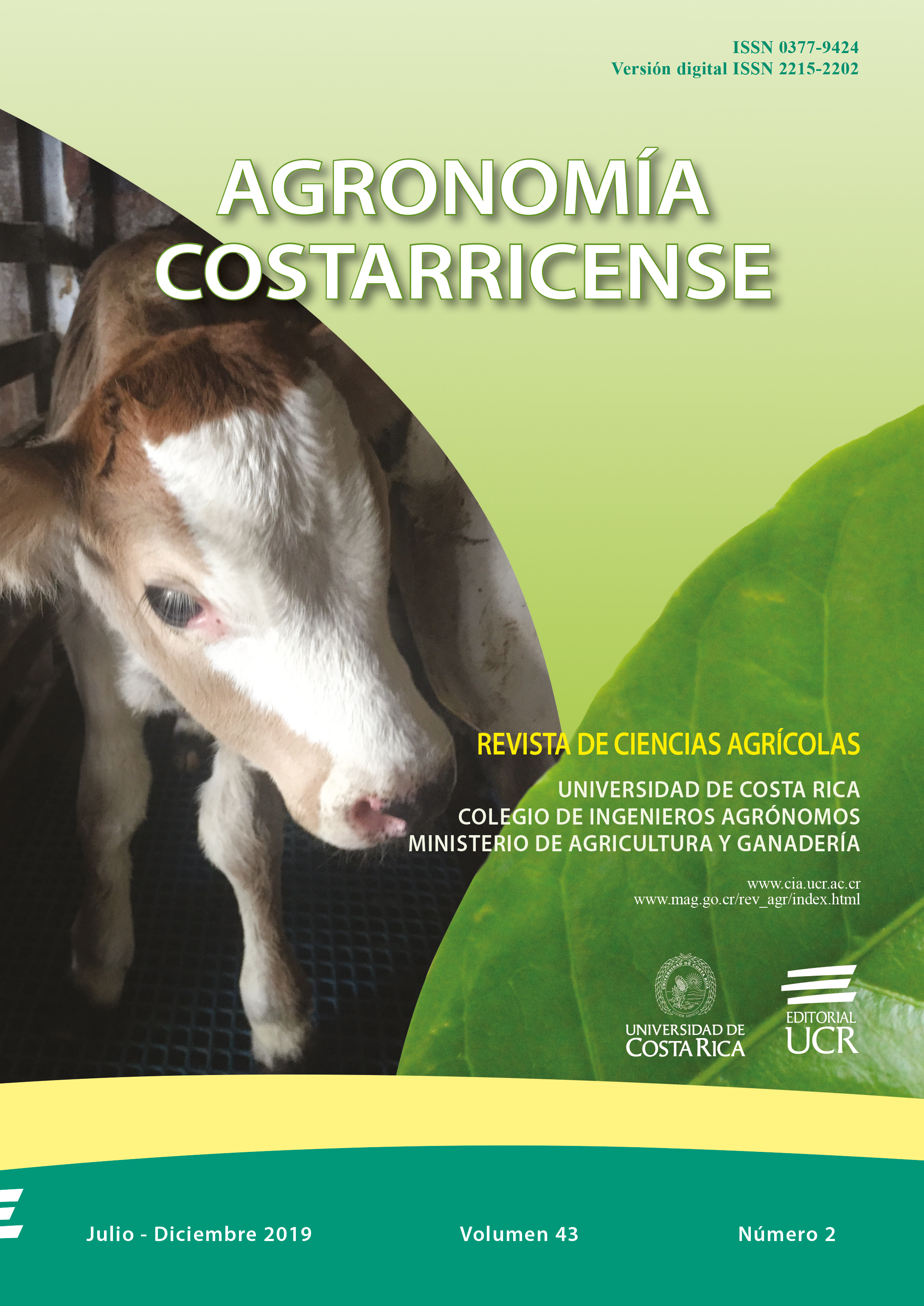Abstract
Tolerance to desiccation and storage of the seed of 4 varieties of Psidium guajava of great economic importance for the germplasm bank of the Colombian Agricultural Research Corporation was determined. Seed tolerance to desiccation and storage evaluations were carried out at germplasm banks of the Genetic Resources Program of the International Center for Tropical Agriculture (CIAT). Viability dynamics were evaluated using tetrazolium, while germination was estimated according to criteria established by Baskin 2002. Vigor was evaluated according to criteria provided by ISTA 2016. Seed of the 4 varieties of Psidium guajava showed tolerance to desiccation. Germination and vigour increased with the loss of moisture content, indicating that there are mechanisms which favor the release of dormancy during desiccation and storage. The storage tolerance test showed that seed physiological quality (viability, germination and vigour) decreases when the seed is stored with a moisture content of 5% at -20°C during 12 months. Temperature of 7±2°C allows to conserve physiological quality of the 4 varieties. However, moisture content in which physiological quality of seed is conserved varies according to variety. Seeds of the Palmira ICA I variety retained their viability when stored at a moisture content of 5% (93.33%), Cimpa Pulpa Roja and Manzana retained their viability with moisture content of 7.5% (94 and 94.44%) and seeds of Cl-0440 material are conserved when they are stored at a moisture content of 10% (94.66%). These results indicate there are genetic differences between the 4 varieties. According to the results of tolerance to desiccation and storage, it is proposed that the seed of the 4 varieties present an intermediate behavior in storage.


